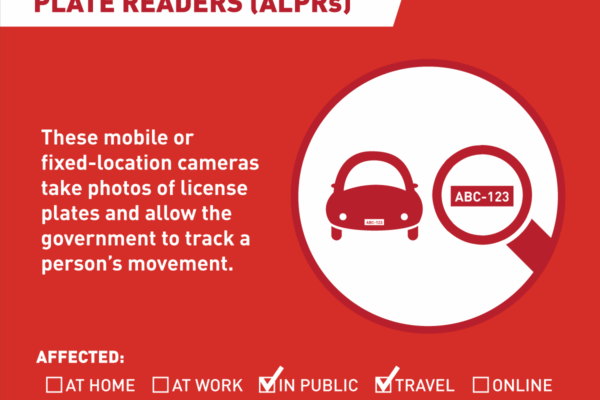The below statement can be attributed to ACLU of Mississippi Executive Director Jennifer Riley-Collins:
“We applaud Representatives Joel Bomgar and Kathy Sykes for sponsoring HB 1092, which would establish the ‘Cell Site Simulator and License Plate Reader Task Force Act,’ and we urge full support from the state legislature. This task force would review how cell site simulators and license plate readers are used by local law enforcement agencies across the state. Presently, that data is not being collected or analyzed nor are local law enforcement agencies readily disclosing the use of these technologies.
“As we revealed in our “Striking the Right Balance” analysis report on the use of body-worn cameras by law enforcement agencies, it is evident that police officers are using tools absent comprehensive policies that protect privacy rights and balance police accountability and government transparency.
“Cell site simulators, often called ‘Stingrays,’ collect unique numeric identities associated with phones in a given location and ascertain the location of a phone when the officers know the numbers associated with it. Likewise, ALPRs, or Automatic License Plate Readers, allow the government to track where people travel in their cars, such as what doctors they go to, what political or religious events they attend, and where they are sleeping at night. These uses raise privacy concerns, and most Mississippians do not know that this is happening.
“As State Public Defender Andre de Gruy and several of his colleagues noted in an opinion editorial published in the Hattiesburg American in 2016, ‘Withholding basic information disregards the rights of Mississippians and allows the government to keep constitutional violations hidden.’
“In addition, while surveillance technologies pose a universal threat to privacy, such technologies are disproportionately being used to target communities of color and low-income communities. This forces members of these communities to live under an oppressive level of police scrutiny that should be reserved only for suspected criminals.
“Without appropriate policies and oversight in place, these tools can be turned from a transparency and accountability tool into a police propaganda and mass surveillance tool. We look forward to working alongside the state legislature to ensure that local LEAs’ use of these tools are not in violation of Mississippians’ constitutional protections.”
Related Content
2018 #msleg Bills We're Still Tracking
Stay Informed
Sign up to be the first to hear about how to take action.
By completing this form, I agree to receive occasional emails per the terms of the ACLU’s privacy statement.
By completing this form, I agree to receive occasional emails per the terms of the ACLU’s privacy statement.


